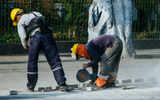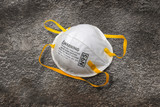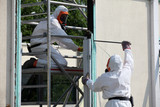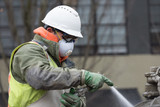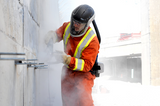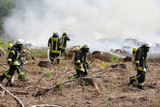Blog
Silica Dust Rules and Regulations
Working in manufacturing or construction industries means being exposed to a number of respiratory hazards, including silica dust. Respirable crystalline silica is commonly found in these job sites as a natural consequence of the activities that are usually done there: cutting, grinding, drilling, brushing stone, concrete, brick, mortar, drywall, and other construction materials can all create silica dust.
Silica dust is a direct and serious threat to the respiratory health and safety o
…
Mar 22nd 2022
Fake N95 Mask? How to Detect Fake N95 Mask
The COVID-19 crisis has left hospitals in a difficult position. More personal protective equipment is desperately needed, and while some protection is better than nothing, healthcare providers who work closely with coronavirus patients need an
N95 mask rather than a surgical mask. Civil-grade, low-quality, or counterfeit masks just don’t offer the same protection for patients or providers, and it’s important that providers know what kind of protective gear they’re getting. Luckily, there a
…
Jun 16th 2020
Respirator Ratings: What Do N95 and P100 Respirator Ratings Mean?
If you and your team need to wear respirators on the job, it helps to have a means of comparing the relative protection between different respirators and filters. These ratings are designed to help protect you and your workers from different sets of airborne hazards. Sawdust and particles containing asbestos fibers are not the same. Neither should we use the same filter. If you use the wrong type of mask on the job, it could put you and your team at risk.
Learn more about N-, R-,
…
Mar 2nd 2020
Respiratory Basics: P100 vs N95
For a lot of job sites, safety masks and respirators are an essential piece of PPE. The lungs are delicate, important organs that are hard to repair if they get damaged, and inhaling the wrong chemical can have devastating effects on other areas of the body as well. Protect yourself from invisible airborne particles by investing in a respirator or mask suited to your job.
How Masks and Respirators Are Rated
The National Institute for Occupational Safety and Health (NIOSH) is a divisio
…
Feb 4th 2020
Silica Dust Mask: What Type of Respirator Should I Use for Silica?
We make specific recommendations below, but first a little background. Working in the manufacturing or construction industries often means being exposed to what’s known as silica dust, or respirable crystalline silica, which is created by cutting, grinding, drilling, or crushing stone, rock, concrete, brick, mortar, and other construction materials. Silica dust poses a direct and serious threat to the health of anyone working near this dust. A study by Koo et al. (2000) highlighted the significa
…
Oct 17th 2019
Respirator for Smoke: What Is the Best Mask for Wildfire Smoke?
As the AB1124 California Bill goes into effect, we’re taking a moment to talk about what employers should look for in a respirator or face mask. The bill requires employers to provide N95 rated respirators (at a minimum) to all their employees working outdoors during a wildfire. Wildfire smoke can irritate a person’s eyes, nose, throat, and lungs, and it can cause cancer, heart disease and even lead to death. N95 respirators protect individuals from some of the particulates present in wildfir
…
Jul 10th 2019
How Often Should You Replace Your Dust Mask?
First of all, a dust mask is has a single strap that goes over the head and provides very little protection from particles and debris in the air. They're also called
nuisance dust masks and they're best used for mild applications like leaf blowing and general household dust protection. Dust masks just don't provide a good face seal and they protect about as well as nose hair, which is to say not that well. Replace them when they look dirty or after about 8 hours of wear. Honestly they're n
…
Nov 20th 2013


